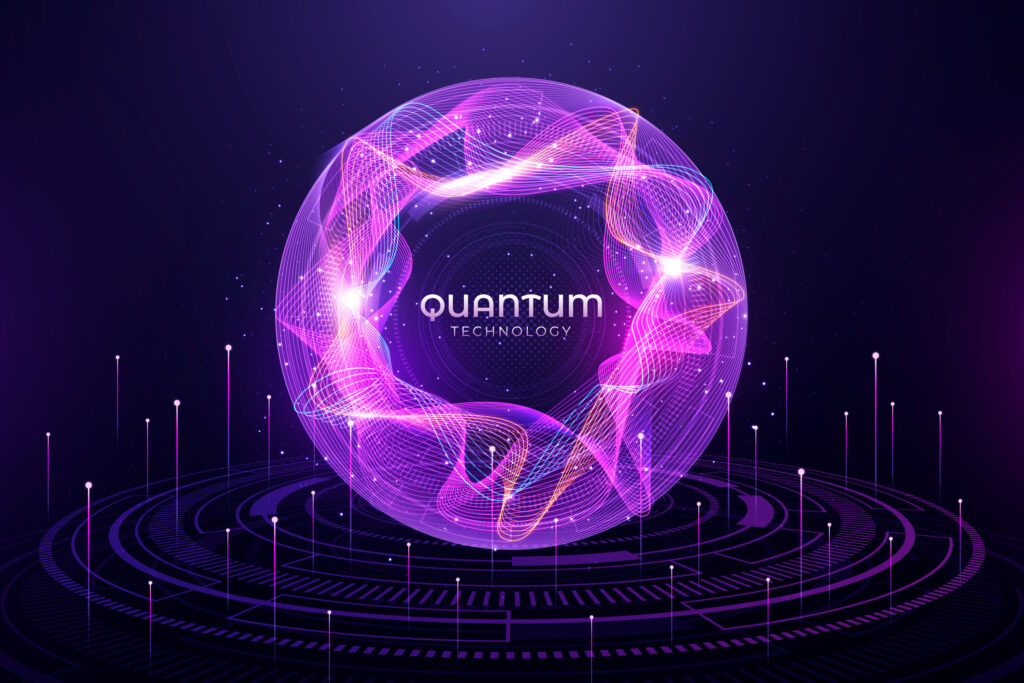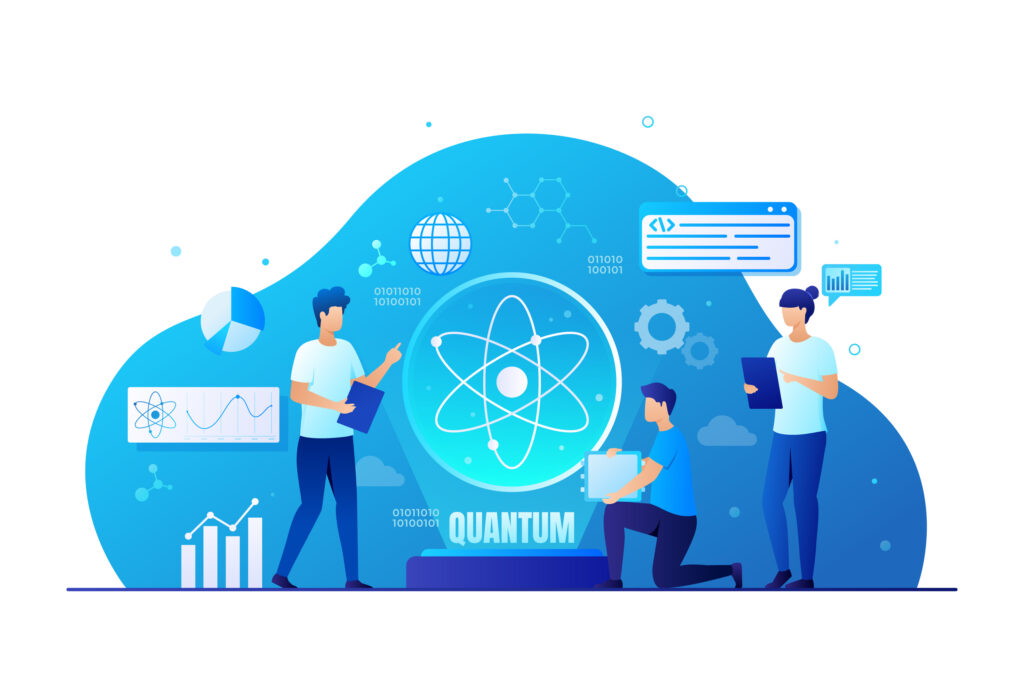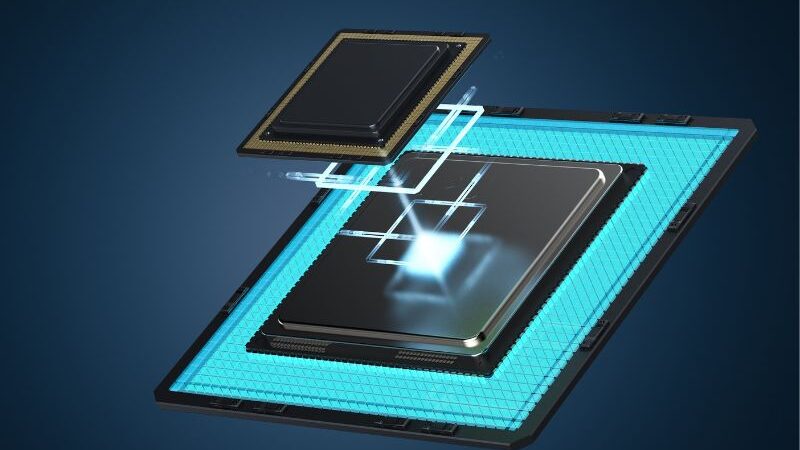Introduction
Using quantum-mechanical phenomena like superposition and entanglement to carry out calculations is known as quantum computing, a field of science that has recently gained a lot of attention. What differentiates it from traditional computing, though, and why is it making such a splash in the IT world? Let’s delve into the idea of the Google quantum computer and look at some of its benefits.
The future of computing technology is quantum computing. It’s a revolution rather than merely an evolution. It makes use of quantum-mechanical phenomena, which were always present but difficult to comprehend. The popularity of quantum computing is growing quickly, and it is predicted to perform better than traditional computing. Come along with me as we investigate the background, benefits, and prospective uses of the Google quantum computer.
Quantum Mechanics
Are you prepared for some science that will blow your mind? A subfield of physics known as quantum mechanics studies the behavior of matter and energy at the tiniest scales imaginable. In this reality, measurements can have an impact on the results of tests and particles can exist in numerous states simultaneously.
What does this have to do with the Google quantum computer, then? The fundamental idea behind quantum computing is to store and process information using the peculiar and counterintuitive characteristics of quantum mechanics. Instead of the conventional “bits” used in ordinary computing, quantum computers utilize “qubits,” which can exist in several states at once (a phenomenon known as superposition).
That’s not all, though. Qubits can also “entangle,” or become highly correlated and able to affect one another even when separated by a large distance, thanks to quantum mechanics. For some kinds of problems, this phenomenon makes it possible for Google quantum computers to calculate calculations tenfold more quickly than traditional computers.
In essence, the groundwork for the ground-breaking idea of the Google quantum computer is provided by quantum mechanics. The future may appear strange and foreign, but it is there. Prepare to be astonished.

Quantum Supremacy
Salve! If you’re a computer enthusiast who likes to stay on top of the newest developments, there’s a good chance you’ve heard about Google Quantum Computer. Everyone is raving about this groundbreaking technology, and for good reason. In this blog, we’ll explore the idea of applied quantum computing and what “quantum supremacy” means for the tech industry.
When a Google quantum computer can execute a computation that a classical computer cannot do within an acceptable length of time, this is referred to as quantum supremacy. In other words, quantum computers are capable of tasks that are beyond the capabilities of classical computers. This is a major development because quantum computers can resolve issues that traditional computers have long been thought to be unable to handle.
Since it represents a crucial turning point in the advancement of quantum computer technology, quantum supremacy is significant. It’s at this moment that we can begin to see how a quantum computer might have a significant practical impact. The applications for quantum computing are genuinely limitless once we achieve quantum dominance.
The wide-ranging effects of quantum supremacy could lead to exponential development in areas including materials science, encryption, drug discovery, and artificial intelligence. Quantum computers may be able to decrypt data using existing encryption techniques, which would have a significant impact on cybersecurity.
In summary, quantum supremacy is a crucial development in the field of quantum computing. It has important and wide-ranging ramifications. We may anticipate significant developments in many domains as the field of quantum computing develops. I appreciate your reading, and till then, quantum on!
Hardware Components
Learning the Idea of Applied Quantum Computing with Google Quantum Computer.
A quantum computer is made up of a variety of hardware and software elements that are intended to use quantum physics to process data. Qubits and gates, superconducting circuits, quantum annealing, and other quantum computer gear are some examples of these hardware parts.
Core Components of Quantum Computers
The core components of quantum computers are qubits, or quantum bits. Qubits take advantage of the principles of quantum physics to enable them to have more than one state at once, in contrast to classical computers that use binary digits of 0 or 1. Superposition is the name for this phenomenon. Contrarily, gates are the logic circuits that control the states of the qubits. To maintain the coherence of qubits, these gates must be fault-tolerant and compatible with quantum error correction techniques.
Another crucial part used by quantum computers for computation is superconducting circuitry. Superconductors are used in these circuits to cool the qubits and lessen environmental noise, which interferes with the coherence of the qubits. Another piece of gear created especially for optimization issues is quantum annealing. These annealers use the quantum tunneling phenomenon to identify the issues with the least amount of energy. Ion traps and topological qubits are additional hardware elements.
Quantum computing has enormous potential, but it also has several difficulties. The hardest problem is maintaining the stability of qubits. Due to the fragility of quantum systems, they are sensitive to external stressors like heat and electromagnetic forces, which lead to decoherence and cause qubits to lose their superposition or entanglement. Another challenge that needs to be overcome for quantum computing is the development of scalable and reliable hardware.
Although quantum computing is still in its infancy, it has enormous potential for resolving computationally challenging issues. It will be interesting to see what happens in the future, as the hardware and software components are being improved all the time.
Application of Google Quantum Computer
Save the reader! After learning about the fundamentals of quantum computing, let’s examine some of its uses. Quantum computers have a wide range of intriguing prospective applications across a wide range of industries and disciplines.
Let’s start by discussing cryptography. Cryptography could undergo a revolution thanks to quantum computing, which has the capacity to decrypt many of the techniques now in use. Particularly for companies that largely rely on digital communication and financial activities, this could have a significant influence on online security.
Moving on to materials science, quantum computing can be used to model the behavior of molecules and atoms, resulting in the development of more effective materials that can withstand a variety of stressors, including thermal, mechanical, and chemical ones. Through the use of various quantum algorithms, computational techniques, and extrapolations of the behavior of matter, quantum computers can assist us in identifying the precise behavior of materials and molecules.
Thanks to algorithms that replicate chemical interactions, quantum computing can facilitate the discovery of new drugs. The simulations may uncover potent compounds that react to diseases, reduce drug adverse effects, improve drug delivery targeting, and indicate potential gains in therapeutic efficacy.
Quantum Computing Helps AI
And last, one field that promises to benefit significantly from quantum computing is artificial intelligence (AI). One of the many benefits of quantum computing for AI is better decision-making. Rapid pattern-finding calculations made feasible by quantum computing’s massively parallel processes may pave the way for significant advancements in artificial intelligence (AI), Internet of Things (IOT) applications such as speech and picture recognition, natural language processing, and others.
It is important to remember that there are far from all possible uses for quantum computing. We can hardly begin to scratch the surface of the possibilities for revolutionary developments in a variety of industries, from finance to logistics, social media to weather forecasting.
Challenges of Google Quantum Computing
Although a brief introduction to quantum computing might seem exciting, each emerging technology has unique difficulties. Before quantum computing can become a realistic reality, there are many obstacles that must be removed due to its complexity. Error correction and fault tolerance are two such difficulties. Keeping quantum bits (qubits) error-free is difficult because of their great susceptibility to external interference.
Another obstacle to the practicality of quantum computing is quantum decoherence. Qubit behavior is incredibly fragile and susceptible to being influenced by almost any environmental contact. Decoherence is a phenomenon that happens as a result of the qubits leaking information and losing their quantum state.
Hardware development is another challenge that researchers must solve because quantum computing is still in its early stages. It’s difficult enough to design a scalable and reliable architecture that can properly handle the resources needed by quantum computers. At the same time, the efficiency requirements of the users should be met by the development of the currently available quantum computer hardware.
Scalability is a huge issue as well, making it the most difficult barrier to overcome thus far. Developers must produce quantum computers that gradually adapt to users’ increasing demands in order for them to be commercially successful.
The challenges that quantum computing faces are difficult to overlook, yet considering the potential benefits, these obstacles are worth clearing. It has never been simple to develop space-age technology, and quantum computing is no exception.

Google Quantum Computer
Conclusion
From medical research to cryptography, quantum computing has the potential to revolutionize a number of industries. Before we can fully utilize its capabilities, there are still issues that must be solved, such as hardware development and mistake correction. However, learning about the world of quantum computing is an interesting adventure.
FAQs
A quantum computer is a special kind of computer that works much more quickly than conventional computers by using the ideas of quantum physics to perform complicated calculations.
Quantum computers employ quantum bits, or qubits, which can concurrently represent several states, as opposed to classical computers, which use bits, which represent information as either a 0 or a 1. Due to this characteristic, quantum computers are able to analyze enormous volumes of data and perform specific tasks more quickly.
The Google Quantum Computer provides sophisticated computational skills, lightning-fast processing, and the capacity to tackle challenging issues that are beyond the scope of conventional computers. It offers a platform for investigation and development in several areas, such as drug discovery, optimization, and cryptography.
It is now possible to solve issues that conventional computers cannot effectively handle by using the Google Quantum Computer. By making simulations, optimization techniques, and data analysis quicker and more accurate, it has the potential to change a number of sectors.
In its early phases of development, the Google Quantum Computer is still dealing with issues including qubit stability, scalability, and error correction. Certain algorithms still need to be optimized for quantum systems; therefore, they might not be appropriate for all kinds of computations.

Leave a Reply